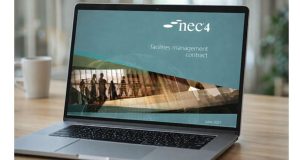REIMAGINING THE WORKPLACE
Creating value means reimagining the office space with clear purpose. Organisations that thrive are those whose facilities don’t just function but elevate the everyday experience. There are two key areas where businesses can achieve this in the context of hospitality:
- Re-evaluating how physical spaces are designed and used
Emphasising the importance of collaboration hubs instead of traditional desks to create shared spaces. Bringing convenience to employees through these environments – with the access to smart building technology can help drive health and wellbeing as well as productivity. - A focus on food, amenities and a strong workplace dining offer
Food creates moments of connection that can’t be replicated in a home office, from a short coffee chat or shared lunch, food is not just fuel, it is a natural social anchor. In the hospitality world food is a sign of care, the same should be true in the workplace.
These areas are something that Sodexo has focused on and deems invaluable to its business. “By creating a synergy between people and place we can actively shape experiences that attract and retain talent, reinforcing belonging and driving operational efficiency,” states O’Keefe.
TRENDS SHAPING THE FUTURE OF FM AND HOSPITALITY
AI is undoubtedly at the top of everyone’s trend prediction lists, and we can expect to see it driving some real industry innovation. AI can play a crucial role in enabling a seamless experience for employees and customers and delivering personalised solutions. AI and developments in tech extend from optimising meeting room availability and adjusting workspace environments based on occupancy data, to even transforming how employees interact with workplace dining options.
The latter is something being utilised by Sodexo with the introduction of its ‘Everyday app’. Everyday is a consumer-facing platform, powered by an AI-powered engine called Foresight, that personalises food choices based on individual preferences, by analysing data of dietary habits, nutritional needs and even daily schedules. Technology allows personalisation, responsiveness and efficiency, and contributes massively to the overall ‘seamless experience’ that is so important to workplace culture.
A hospitable workplace means creating a seamless and fulfilling experience. As the industry continues to develop and this type of FM service becomes a normality, the ins and outs of being a facilities manager in an office environment may not be all that different to that of a hotel. As Lynsey O’Keefe states: “The most effective workplace strategies bridge hospitality and facilities management, creating a dynamic and employee-centric workplace experience. It isn’t just about aesthetics; it’s a business decision with measurable returns.”
CONCLUSION
The FM sector is increasingly prioritising health, sustainability, wellbeing, and socialisation through a people-focused hospitality approach. The drop in office occupation in recent years has provoked the need to curate environments that offer all these things, as connection isn’t automatic anymore. When a workplace feels comfortable and valuable it cultivates a sense of pride and identity, it becomes more than just a space, it becomes a differentiator. Facilities managers have the power to shape not just the physical environment, but the entire workplace experience.





